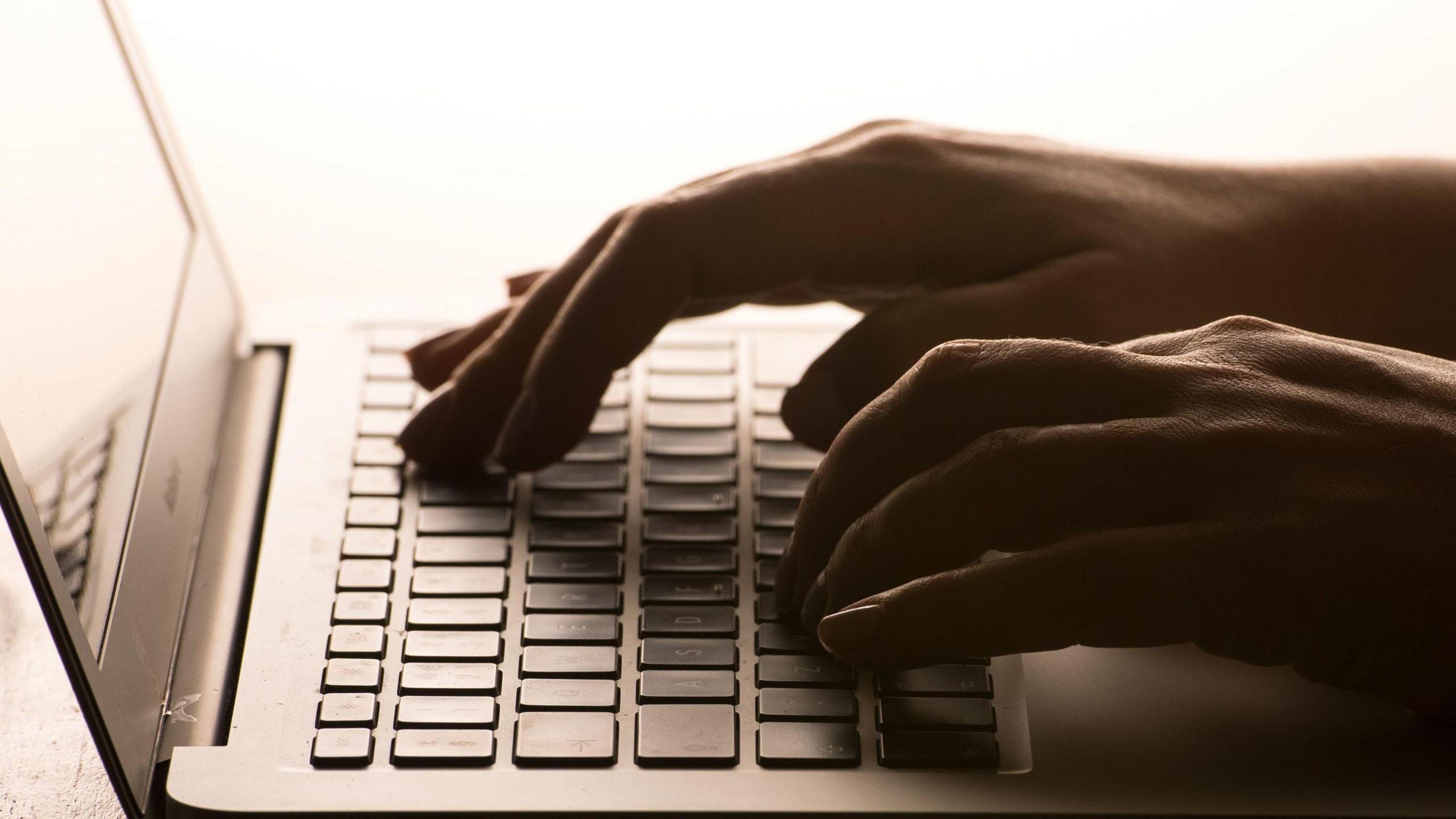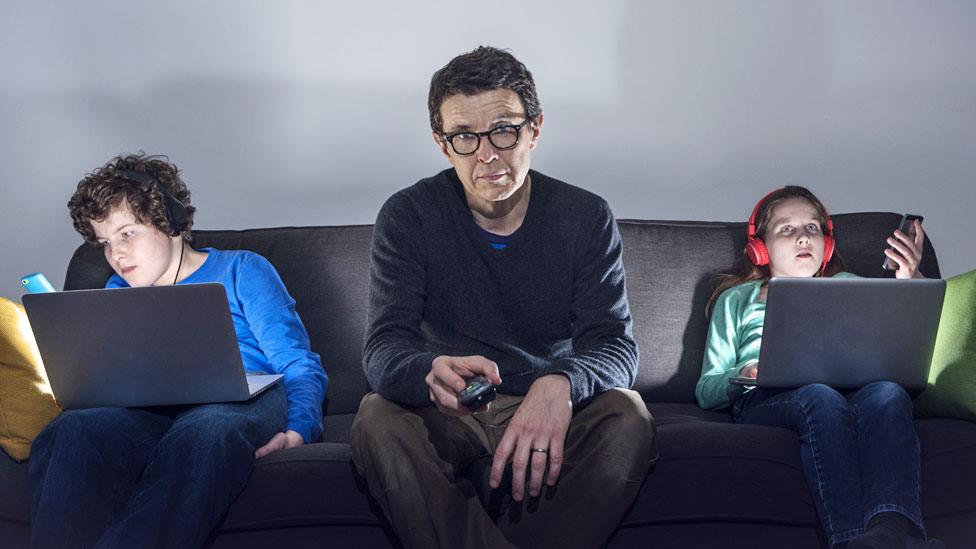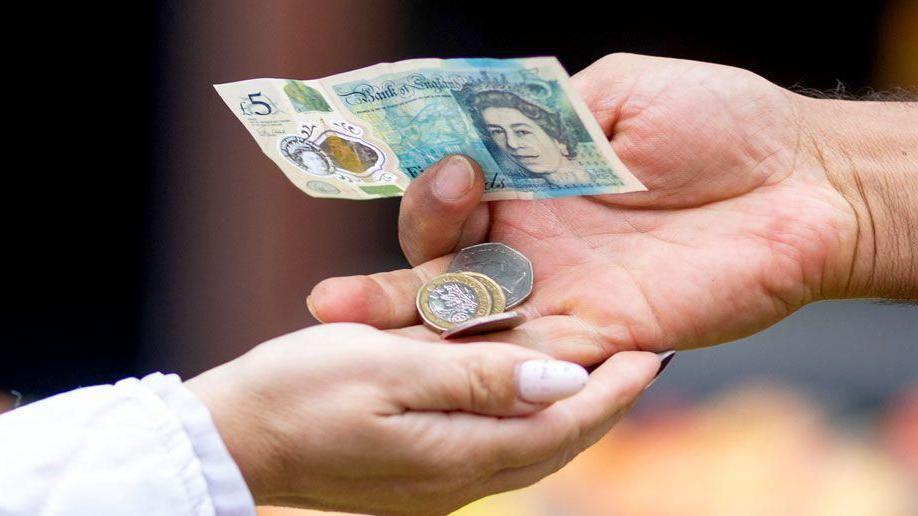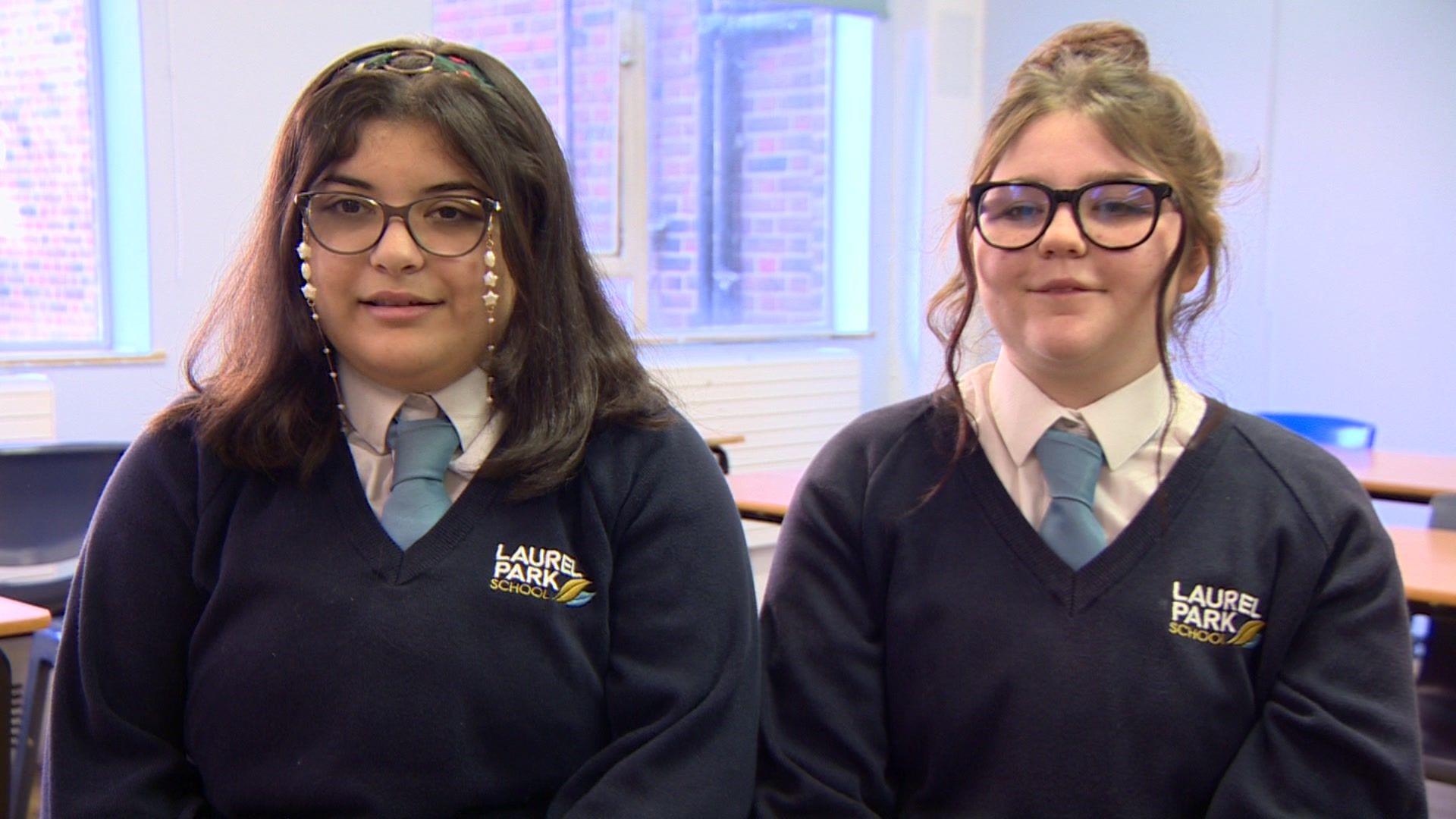Plan for Londoners who can't afford to get online

More than 250,000 Londoners are completely offline, according to a report
- Published
The mayor of London is urging London businesses to help "digitally excluded" Londoners get online by donating unwanted mobile phones, laptops and other IT equipment.
Sir Sadiq Khan said he needed help to fix the digital divide and ensure access for all, and called for devices to be donated that are no longer needed.
A 2022 report on digital inclusion, external found that more than 250,000 Londoners had no internet access at all, and two million had very limited digital engagement - such as lacking their own device.
In response, Get Online London has established more than 1,100 Digital Inclusion Hubs across every borough in London, providing free internet access.
'Like a foodbank for data'
Get Online London, external, a digital inclusion service delivered by the charity Good Things Foundation and supported up by City Hall and the London Office of Technology and Innovation, is accepting donations of mobile phones, laptops and other IT kit.
It runs the London Device Bank, which refurbishes old devices and gives them to people in need through a network of community organisations.
So far it has distributed 88,500 data packages and 7,119 devices.
The mayor has agreed to donate more than 700 City Hall devices and is calling on businesses and public bodies to join City Hall, the Metropolitan Police Service, Thames Water and many London borough councils already contributing to Get Online London.
Sir Sadiq said the service "has been a huge success and I'm really proud that we've now reached more than 100,000 Londoners".
He added: "Demand for devices still far outstrips supply, so we must do more.
"Devices an organisation no longer needs can be essential lifelines for others."
The 1,106 London Digital Inclusion Hubs are part of the National Digital Inclusion Network, described as "like a foodbank but for mobile data".
The network provides free mobile SIM cards for people who can't access the internet.
Launched in July 2021, the national databank was founded to tackle data poverty and isolation during the Covid-19 pandemic.
Listen to the best of BBC Radio London on Sounds and follow BBC London on Facebook, external, X, external and Instagram, external. Send your story ideas to hello.bbclondon@bbc.co.uk, external
Related topics
- Published24 April 2020

- Published28 January

- Published6 December 2024
